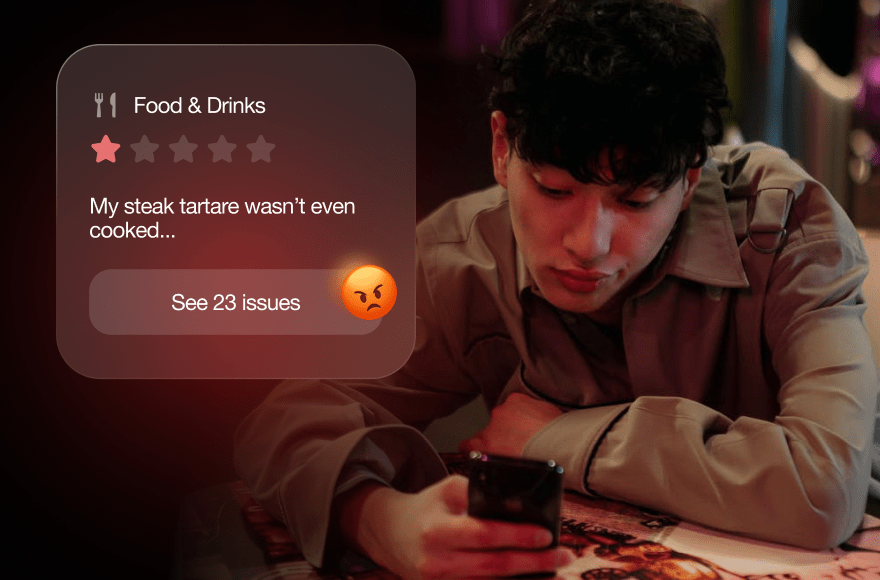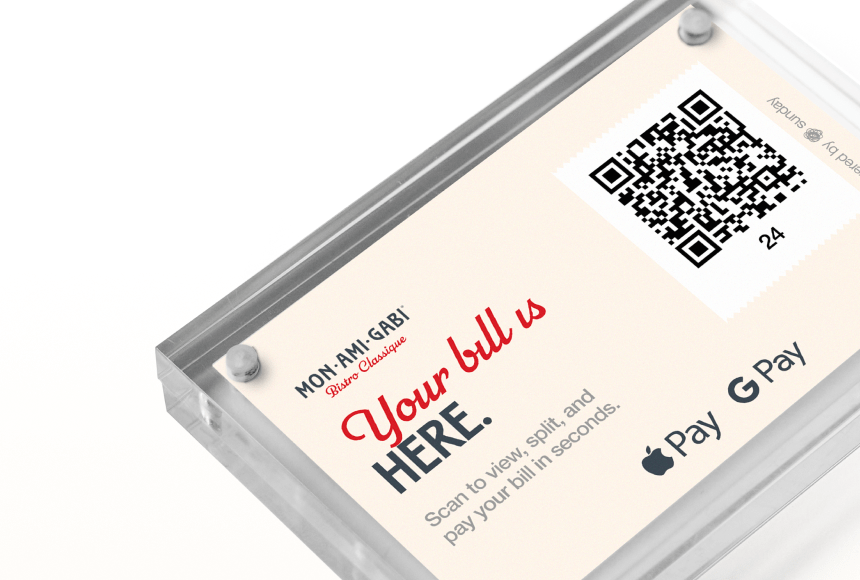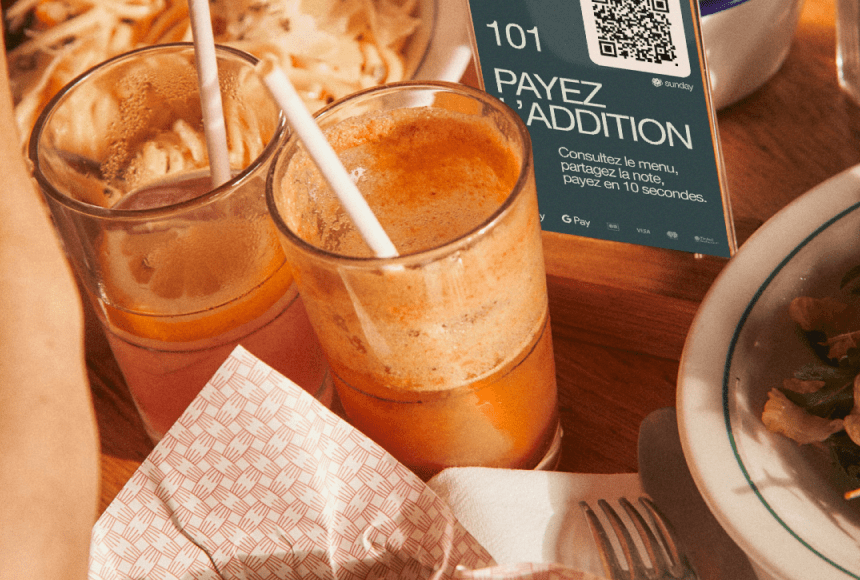
Empowering Your Restaurant Staff with Clear Rewards and Ongoing Incentives
Why Compensation Goes Beyond Dollars and Cents
In the restaurant world, high turnover is the norm, and staff morale can rise or fall with the slightest wind. At first glance, you might assume that paying a bit more per hour or offering a bigger tip pool is enough to retain your team. But compensation runs deeper than wages alone—especially when you want to foster a high-performance culture. If you think about it, compensation is really a blend of factors: from flexible scheduling and personal recognition to digital tools that streamline their daily tasks.
When your staff feels genuinely appreciated and sees a bright future on your team, they’re far more likely to stick around. This article explores how you can align compensation, performance goals, and technology—like sunday—to motivate your restaurant employees day after day. Whether you manage a boutique bistro or a high-volume chain, these practical tips can help you transform daily chores into a rewarding experience for everyone involved.
1. Tie Performance Metrics Directly to Rewards
Gone are the days when a simple hourly wage plus tips was all it took to keep servers motivated. In today’s competitive market, employees want to know exactly how they can grow. That’s where performance-based systems come into play:
- Sales and Upselling: Encourage servers to recommend certain dishes, specialty drinks, or seasonal desserts. Then reward them when they exceed a preset target, whether it’s an extra bonus or first dibs on prime shifts.
- Customer Satisfaction: Use real-time feedback—like star ratings after payment—to gauge service quality. If a server consistently receives 4- or 5-star reviews, that can trigger a small financial bonus or additional time off.
- Operational Efficiency: For back-of-house roles, measure tasks completed within a certain timeframe or minimal food waste. Recognize those who keep the kitchen running smoothly, as their efforts free front-of-house to deliver stellar guest experiences.
When employees understand exactly how their actions impact pay, you create a transparent environment. This clarity encourages healthy competition, fosters collaboration (when group goals are recognized), and keeps staff engaged.
2. Embrace Digital Tools That Simplify Workflows
Long lines at the register, lost receipts, or endless back-and-forth with card machines can frustrate even the best staff. That’s where modern payment solutions like sunday can make a real difference:
- Faster Checkouts: By letting diners pay via their own phones—scanning a QR code—servers spend less time handling the grunt work of splitting checks or waiting for a credit card terminal. They can move on to help new tables or upsell another beverage.
- Clear Tipping Prompts: On-screen suggestions for 15%, 20%, or 25% often raise tip percentages. More tips keep morale high and reduce turnover, a major win for your restaurant.
- Reduced Errors: Fewer manual calculations help employees focus on personal service rather than double-checking bills. That sense of relief can do wonders for team morale.
When staff sees how technology simplifies daily tasks—rather than complicating them—enthusiasm for new systems skyrockets. That positivity quickly translates into better performance and a smoother shift for everyone.
3. Offer Tiered Compensation for Different Skill Levels
Not all roles or employees are the same. One server might excel at upselling wines while another shines in large-party management. Recognize such differences with tiered compensation models:
- “Server Levels”: Label them as Bronze, Silver, or Gold based on skill sets, seniority, or proven ability to handle complex tasks. Each level might earn a higher base wage or unlock special perks, like priority scheduling.
- Expanded Roles, Expanded Pay: If a line cook learns advanced techniques or a server trains in cocktail mixing, they should see a corresponding pay raise or bonus. This approach encourages continuous learning.
When ambitious staff know they can climb the ladder by developing their skills, they’ll push themselves to meet your standards—and stay put longer, reducing your recruitment costs.
4. Simplify the Tip Pool to Encourage Teamwork
In some restaurants, staff may spend too much time wrangling about who earned which portion of the tips. A convoluted or opaque system often breeds resentment. Instead, consider a streamlined, transparent approach:
- Auto-Pooling: If your entire front-of-house uses a single digital payment system, the software can auto-split tips based on predefined rules—like hours worked or position—at day’s end.
- Public Tip Tracking: Display real-time tip tallies on a staff-only monitor. Everyone sees the day’s progress, fostering a sense of collective accomplishment.
When your tip management is fair and visible, you minimize disputes and keep your crew aligned around delivering excellent service. This unity helps daily performance remain consistently high, as they all benefit from group success.
5. Recognize Achievements Beyond Monetary Incentives
Sure, employees appreciate bonuses or better pay, but recognition often matters just as much. A simple shout-out in the morning huddle can energize someone for the entire day. Think about layering in:
- Weekly “High Five” Awards: A small gesture—like a pin or certificate—celebrating a staff member who handled a tricky guest or improved the dessert sales. Keep it playful but meaningful.
- Spotlight on Social Media: A quick post praising your top server or line cook can make them feel valued and also show customers your positive workplace culture.
- Team Challenges: For instance, track who can get the most 5-star feedback in a week. Winners might choose the next staff meal or a small perk—like an early cut on a slow evening.
Recognition fosters a personal connection to their role. When staff see that management notices more than just the bottom line, they commit more deeply to excellence.
6. Use Data to Match Shifts with Performance
A big part of daily motivation is the alignment between staff strengths and their assigned tasks. If a particular server is adept at VIP guests or large parties, place them accordingly. Digital solutions can track performance metrics:
- Analyzing Ticket Times: Notice who handles orders fastest. Let them handle busier shift sections or peak hours. That can boost sales and tips for them (and your restaurant).
- Observing Upticks in Sales: If one server consistently sells more appetizers or sides, schedule them on nights with bigger crowds. Encourage them to share upselling tips with others.
Balancing skill sets with shift demands fosters less stress, better service, and ironically, higher morale. Staffers see that you care about their unique talents and want to maximize their success.
7. Provide Growth Opportunities, Not Just Day-to-Day Tasks
One major reason employees leave is stagnation. If your restaurant only offers them a set routine—seat guests, take orders, handle checks—they’ll look for growth elsewhere. So how can compensation structures address this?
- Professional Development Stipends: Maybe you give your best servers an allowance to attend a wine-tasting workshop or barista course. They come back with new skills to share, and you show you’re willing to invest in them.
- Internal Promotion Paths: Spell out exactly how a runner can become a server, or how a server can climb to manager-level pay. Concrete pathways quell uncertainty and encourage employees to stay long enough to level up.
You want your staff to view your restaurant as a career stepping stone, not a dead-end. Even smaller gestures—like letting a cook experiment with a weekend special—instill a sense of ownership and reduce complacency.
8. Incentivize Team Collaboration with Group Rewards
Restaurants thrive on teamwork. If each server only cares about their own tips, some tasks (like restocking or helping out during rush) might go neglected. So consider:
- Goal-Based Bonuses: If the entire team meets a monthly sales goal or achieves a certain average star rating, everyone gets a slice of an extra bonus. Now, they have a reason to help each other, not just themselves.
- Staff Dinner “Wins”: Treat the crew to a celebratory meal or a night out if they maintain a certain level of performance or complete a challenging weekend without a single complaint. This shared victory builds camaraderie.
Social reinforcement is powerful. When employees see their collective effort rewarded, they’ll more willingly jump in to help a busy coworker or rally around the kitchen when orders pile up.
9. Communicate Total Compensation Upfront
Compensation can include more than just an hourly rate or tips. If you offer meal discounts, health benefits, or paid time off, ensure your staff knows the full value. Sometimes employees only focus on hourly wage, forgetting they also receive non-cash perks:
- Break Down Their Package: Show them, for instance, how a partial health subsidy saves them money each month. Or how a consistent schedule can lead to stable earnings without last-minute changes.
- Tech Tools as a Perk: If you use a scheduling app that lets them track earnings in real time or easily request time off, emphasize how that removes stress from their day. Peace of mind is an intangible but significant perk.
Clarifying these details can dissuade staff from chasing a slightly higher wage at a competitor who doesn’t offer the same benefits. Loyalty grows when people see the broader picture.
Charting a Path to Motivated Staff, Day In and Day Out
Sustaining daily motivation isn’t a single-step process. It’s a careful blend of fair wages, data-driven performance, practical technology solutions like sunday, and consistent recognition. When your servers and cooks see how everything—from tips to scheduling—aligns with their personal goals, they stay engaged and passionate about delivering top-quality dining experiences.
Sure, occasional staff turnover might be inevitable in hospitality, but you can slash that rate by creating an environment where employees feel valued and see a clear path to growth. Compensation and performance management is no longer just about a paycheck; it’s about developing a nurturing ecosystem that encourages everyone to do their best work every day.
Adopting modern payment or scheduling platforms, establishing transparent tip distribution, and promoting knowledge-sharing are strategies that genuinely matter to your team. They walk into their shift feeling empowered, not stressed. In return, your restaurant enjoys smoother operations, more satisfied guests, and, yes, a healthier bottom line.
So if you’re searching for ways to re-energize your crew or lower your turnover, consider reevaluating how you reward performance. With the right mix of digital simplicity, targeted incentives, and heartfelt human recognition, you can spark a culture of excellence—one where each staff member feels inspired to deliver a standout guest experience, shift after shift.
Find out more today
Drop us your details below and we’ll reach out within the next 24h
Get the full, detailed picture.
sunday elevates your business with insightful data, instant feedback and precise analytics.




